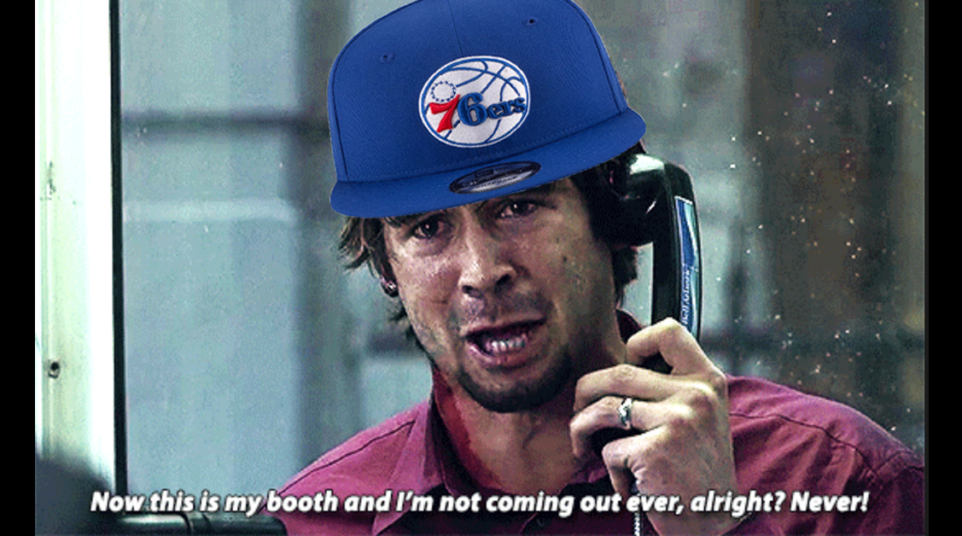
As Brian Kelly Leaves Notre Dame for LSU, College Football Has a Big Problem
Monday, Brian Kelly walked away from his “dream job” at Notre Dame and woke up to a new reality as head coach of the LSU Tigers.
When he arrived in South Bend in December of 2009, Kelly had just guided the Cincinnati Bearcats to a 12-0 campaign and a Sugar Bowl berth. In just three seasons in the Queen City, Kelly elevated Cincinnati’s program to heights typically reserved for college football’s traditional powers. Notre Dame’s athletic director, Jack Swarbrick, hired Kelly to engineer an even bigger miracle: to reclaim the Fighting Irish’s place among college football’s elite, and to compete for championships on a regular basis.
It was a mission bound to end in failure. Since 1997, Notre Dame had cycled through four head coaches, each failing in his own way to escape the legendary shadows of national champions Knute Rockne, Ara Parseghian, Frank Leahy, Dan Devine, and Lou Holtz. Bob Davie’s tenure never got off the ground, and he was dismissed after the 2001 season. George O’Leary was hired to take Davie’s place, but the former Georgia Tech coach was forced to resign after some discrepancies on his resume came to light. Tyrone Willingham took the reins of the program and found some early success, but the Golden Domers quickly reverted to their middling ways and fired Willingham after three seasons.
Desperate to re-establish the program’s footing, the Fighting Irish turned to a brash alumnus who promised to bring to South Bend an unrivaled offensive scheme that delivered three Super Bowls to New England. The problem, of course, was that Charlie Weis’ cutting-edge game plans were dulled considerably when they weren’t overseen by Bill Belichick and executed by Tom Brady. Weis would end up one of the many branches of the Belichick coaching tree that did not yield any fruit. Notre Dame was compelled to make the financially painful decision to terminate Weis in 2009, paying their former head coach approximately $19 million in severance spread over seven years.
Into the maelstrom of dysfunction and chronic mediocrity stepped Kelly, and he immediately went to work rebuilding the foundations of Notre Dame’s once-vaunted football empire. By year three, Kelly had Notre Dame in the national championship game, where the Irish were pummeled by Nick Saban and the Alabama Crimson Tide by a score of 42-14. Trips to the College Football Playoff in 2018 and 2020 followed, but yielded similarly lopsided results.
During his tenure at Notre Dame, Kelly didn’t bother chasing the ghosts of his successful predecessors. Instead, he methodically crafted his own legacy. Kelly favored a spread offensive scheme and a dual threat quarterback, but he also constructed a roster heavy on offensive line talent. The Irish could burn defenses by spacing them out and hitting deep crossing routes, or they could line up and run the ball right between the tackles. Elite tight ends continued to make their way to campus, and Kelly integrated them all into his system. The defense got faster and more aggressive, matching the skill and the speed of offenses that increasingly forced opponents to defend the entire width and length of the field.
Along the way, Kelly demonstrated a willingness to fix his mistakes. After a disastrous 4-8 season in 2016, Kelly shifted gears and reconfigured his program seven years into his Notre Dame career. He parted with longtime friends and assistants, removed himself from play calling duties, and re-evaluated every aspect of his operation. The result was five straight ten-win seasons, a model of consistency that most athletic directors would pay top dollar to import to their own universities.
It should have come as no surprise, then, that LSU came knocking on Kelly’s door with a briefcase full of SEC money and an offer of a potentially easier path to an elusive national championship. The deep pockets of LSU’s donor class and the fertile recruiting soil of the Bayou proved too enticing for Kelly to pass, and he accepted the position.
As he heads for the greener pastures of SEC country, Brian Kelly doesn’t owe the University of Notre Dame, its athletics department, or its fan base anything. The football program he leaves at South Bend is in much better condition than the shoddy organization he inherited. Notre Dame currently boasts a 2022 recruiting class ranked 4th in the nation; one of the primary architects of the class, defensive coordinator Marcus Freeman, seems a logical and natural candidate to succeed Kelly on the Notre Dame sideline. If Freeman is not a viable option, the program is well positioned to attract a top-flight coach from outside its ranks.
It might be strange for a man about to sign a $100 million contract to admit, but Kelly does owe an incredible debt — to the players and staff whose labors enabled his success. What do the players who sacrificed a normal college experience deserve, the young men who could not take a preferred course or sleep in in on a weekday or go to a Friday night party because team obligations took precedence? Is room and board, along with the privilege of wearing a Notre Dame uniform, enough for the Golden Domers who took to the field in 2021, improved every week, and delivered a remarkable season for their coach, who then exploited the team’s success to enrich himself? The hours spent on training tables, in the weight room, on practice fields in the spring and summer — is enough good will built up in those thankless hours to receive a personal parting message from their head coach, who is leaving them for a new opportunity before their season is even over, with a potential playoff birth or, failing that, a New Year’s Bowl bid on the horizon? This is to say nothing of a class of recruits poised to begin their own careers at Notre Dame next fall, whose futures now rest on a fateful spin of the coaching carousel.
The players who delivered an 11-1 record for Brian Kelly instead received the news that their coach would be leaving them in the lurch the same way the rest of us learned of it: via the internet. Kelly did follow up with a text message and a promise of an in-person farewell in the morning:
Just now Brian Kelly messaged Notre Dame’s roster in Team Works that “I will be leaving Notre Dame.”
The plan is for Kelly to meet with the team tomorrow at 7 a.m.
Here is the full message pic.twitter.com/sqAl2txZIy
— Pete Sampson (@PeteSampson_) November 30, 2021
The members of the chattering classes who obsess over the weekly changes in the Playoff pecking order will likely not spend much time dwelling on the fates of the dispossessed in college football. While there might be some frustration expressed about the way these late-season coaching searches are handled, the coverage will be dwarfed by the avalanche of analysis dissecting the details of Kelly’s new deal, the implications of the move for the coach and LSU, and speculation over which candidate could fill the new vacancy at Notre Dame. The fact coaches need to leave one multimillion dollar job for another multimillion dollar job is just part of the business. Hands will be thrown in the air, and everyone will fix their gaze elsewhere because, in the world of college football, the most formidable defense is the status quo.
For a venture that defines itself as an amateur endeavor, there sure seems to be a lot of money polluting college football. The only instance when anyone in a position of power seems to speak up about the corrosive economics negatively impacting the game seems to be when the players reach for their own slice of the pie. A lengthy court battle was required for the NCAA to finally acknowledge the propriety of a student-athlete capitalizing on his name, image, and likeness to secure promotional deals.
And Lord forbid if an NFL prospect decides to sit out the Gasparilla Bowl in order to protect his health and future earnings. “Don’t they care about their team? NFL scouts should take this into account as they make their evaluations!” demand the old graybeards who can’t stand the way Zoomers are ruining their precious game, but can’t seem to tap into their well of outrage as coaches and administrators have allowed big money to redefine college football forever. It’s easy to lose your way when your moral compass is broken.
Nevertheless, Brian Kelly will certainly have no trouble establishing himself at LSU. Given the success his predecessors have enjoyed in Baton Rouge, I would not be surprised if he delivered a national title for the Tigers in the space of three or four seasons. He’s an excellent coach, though his reputation would take a serious hit if he worked in any other profession.
In college football, however, winning cures everything. And if it doesn’t, there’s always a golden parachute at hand to break your fall. You just have to be willing to jump — away from your commitments to your players and the principles you preach, and into the great, lucrative unknown of the next opportunity.





